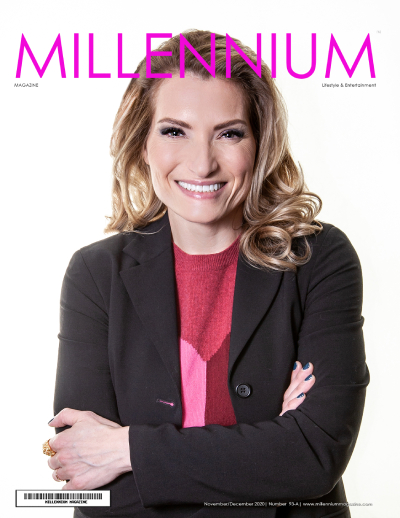Dr. Nina Radcliff
The term “breakfast” is derived from the fact that we are “breaking” our “fast” and providing our bodies with fuel after several hours of not eating. And despite the proven benefits of eating a morning meal—more energy, improved ability to concentrate, and a decreased incidence of obesity, heart disease, and diabetes–a shocking 31 million Americans skip breakfast every morning! The most common reasons for not eating our “most important meal of the day:” they did not feel hungry or were too busy. Let’s take a closer look at why this meal is so important and how we can make some minor changes to get us on the right track—eating our breakfast!
Dr. Nina’s What You Need To Know About The Health Benefits of Breakfast
Maintain Weight
It may seem intuitive that eating less calories, for example, by skipping breakfast, can help us lose weight. However, when it comes to “the most important meal of the day,” the reality is counter-intuitive. Eating breakfast suppresses the release of hunger hormones that would stimulate our appetite and also provides a feeling of fullness or “satiety.” What this translates to is having more willpower when faced with high calorie, high fat, or sugary options that can wreak havoc to our waistlines.
In fact, research has shown that dieters who regularly eat breakfast, on average, lose 50 percent more weight than dieters who skip breakfast. And, they are more likely to keep it off for at least 2 years.
Type 2 Diabetes
People who regularly skip breakfast have a greater than 20 percent increased risk of developing Type 2 diabetes compared to breakfast-eaters. The reasoning behind this is that our blood sugar levels are often low in the morning after fasting all night. And if we do not eat a morning meal to restore them, our body responds by increasing cortisol, a stress hormone that can cause “ups and downs” in blood sugar levels and insulin production throughout the day. Over time, these fluctuations can contribute to the development of insulin resistance and, hence, diabetes. Conversely, eating a balanced breakfast can fend off cortisol and “hunger hormone” production, and, as a result, stabilize blood sugar levels.
Heart Health
In a large study looking at the eating patterns of 27,000 men, not eating a morning meal was associated with a 27 percent greater risk for a heart attack or death from one. Although the study group only looked at men, the results are likely to also apply to women. The science behind this link remains unclear. What we do know is that eating a morning meal can help fend off risk factors for heart disease: obesity, high cholesterol, diabetes, and high blood pressure.
Mental Sharpness
Food is fuel and provides the necessary nutrients, vitamins, and minerals for our body to function, including our brain. Before going for a run or to the gym, it makes sense that we nourish our muscles with a snack or small meal. Similarly, our brain needs the same nourishment for optimal performance. Studies have shown that eating breakfast is associated with better memory, concentration, learning, and creativity. In fact, when children eat a balanced breakfast, they get better grades and are less likely to be tardy or absent.
Some tips and tricks Big results can start with small changes to our grocery shopping and morning routine. And what we eat is important. The next time we are at the grocery store or market, make sure to fill our grocery carts with some nutritious ingredients, such as:
· Fresh fruit: apples, bananas, oranges, grapes
· Frozen fruit: great for smoothies or adding to Greek yogurt
· Whole grains: wheat bread, English muffins, bran cereal; steel-cut oats
· Nuts: peanuts, almonds, pecans, walnuts, pistachios; and peanut or almond butter
· Eggs or egg substitute
· Dairy: Skim cow, soy, or almond milk; Greek yogurt; cottage cheese; cheese
Consider preparing items the night before, or when we have time and freeze them.
What are some healthy, quick, easy breakfast ideas?
· A bowl of steel-cut oatmeal or bran cereal with fruit or nuts sprinkled on top
· A cup of Greek yogurt with fruit, honey, steel-cut oats, or nuts on top
· Whole grain bread with cheese or peanut butter spread on it
· Scrambled, omelet, sunny-side up, boiled, or over-easy eggs with veggies and/or cheese on whole-wheat bread, or wrapped inside a pita
· Smoothies with skim milk or yogurt, fruit, veggies
· Cheese and fruit platter
There are an endless number of creative, tasty, easy, and quick breakfast options that can help us get our morning started off right…and place us on a path to a lifetime of healthy eating. Choosing nutritious items will fuel our bodies and minds so we can be at our optimal performance—be the best us.
“Eat breakfast like a king, lunch like a prince, and dinner like a pauper”—Adelle Davis.
This article is for general information only and should not be used for the diagnosis or treatment of medical conditions and cannot substitute for the advice from your medical professional. Dr. Nina has used all reasonable care in compiling the current information but it may not apply to you and your symptoms. Always consult a doctor or other health care professional for diagnosis and treatment of medical conditions.

























